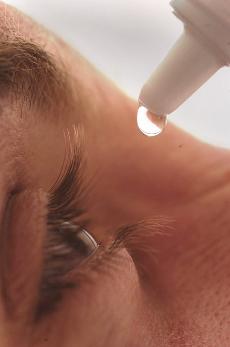Contact solution linked to fungus

Austin Happel
Apr 28, 2006
Last updated on May 12, 2016 at 02:58 a.m.
The Centers for Disease Control and Prevention and the U.S. Food and Administration are notifying health care professionals and contact lens wearers about increasing reports of Fusarium, a fungus identified as the cause of a rare but serious eye infection within the United States.
The American Academy of Ophthalmology advised consumers to discontinue using Bausch & Lomb ReNu with MoistureLoc contact lens solution, which has been in question as a possible common element in some of the fungal infection cases.
Since April 9, there have been a total of 109 patients suspected of having Fusarium keratitis, according to the Centers for Disease Control and Prevention. Out of the 30 patients who were interviewed, 28 wore soft contact lenses and 26 of them reported using a Bausch & Lomb brand. When cases of Fusarium keratitis were identified among contact lens wearers in Asia in February 2006, Bausch & Lomb voluntarily halted its sales of ReNu contact solutions in Singapore and Hong Kong. However, no direct correlative cause has been established between the infections and ReNu with MoistureLoc.
The Centers for Disease Control and Prevention is partnering with local and state health departments, the U.S. Food and Administration and the U.S. Department of Agriculture to evaluate reports of Fusarium keratitis, said Christopher Cox, press assistant for the Centers for Disease Control and Prevention.
Get The Daily Illini in your inbox!
The Centers for Disease Control and Prevention has confirmed 73 cases and are investigating an additional 113 from 29 states and territories, Cox said.
On April 13, Bausch & Lomb asked U.S. retailers to temporarily remove ReNu with MoistureLoc from their shelves, recommending that contact lens wearers switch to another lens care solution until an investigation is concluded.
Meg Graham, director of corporate communications at Bausch & Lomb, said only the ReNu MoistureLoc has been pulled from retailer shelves. MoistureLoc contains a different disinfectant than ReNu MultiPlus and ReNu Multi-Purpose and has a specific patented product that helps contact lenses stay moist longer, she said.
Fungal keratitis is a serious and painful corneal disease that has not been reported among contact lens wearers until recently. If untreated, Fusarium keratitis can cause blindness.
“It’s usually caused from organic material, like a piece of bark in the eye or a scratch from a Christmas tree, that eat away at the cornea,” said Dr. Julie Quivey from Pearle Vision, 2000 N. Neil St. “It’s worse than bacterial or viral infection because it’s harder to control and takes longer to get over it.”
Fusarium keratitis can be treated with topical and oral antifungal medications, eye surgery and possibly corneal transplant, if necessary.
Symptoms of fungal keratitis include blurred vision, unusual redness or pain in the eye, increased sensitivity to light, and excessive tearing or discharge, according to the American Optometric Association.
Safe handling, storage and cleaning of contact lenses, according to the American Academy of Ophthalmology, can reduce risk of fungal keratitis infections.
“Investigations involving this many potential cases spread across many states take time,” Cox said. “CDC is working as quickly as we can to determine what may be causing the infections. The CDC is hopeful that the results will help identify factors that make people more at risk for this infection and measures that can be put into place to prevent further infections related to contact lens wear.”





